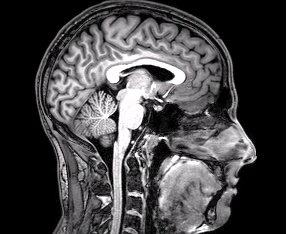New Study Reveals Statins Could Prevent Thousands of Heart Attacks and Strokes

A recent study published in the Journal of General Internal Medicine highlights a significant public health issue: over 39,000 deaths, nearly 100,000 non-fatal heart attacks, and up to 65,000 strokes annually in the United States could be prevented if individuals eligible for cholesterol-lowering medications, particularly statins, adhered to their prescriptions. Conducted by a team of researchers at the Johns Hopkins Bloomberg School of Public Health, the study draws on data collected from nearly 5,000 adults aged 40 to 75 who participated in the U.S. Centers for Disease Control and Prevention health survey from 2013 to 2020.
According to Dr. Caleb Alexander, the lead researcher and a professor of epidemiology at Johns Hopkins, nearly half of Americans who have never experienced a heart attack or stroke are eligible for statin therapy under current guidelines. However, only about 23% of these individuals have been prescribed these life-saving medications, indicating a troubling gap in preventive care.
The study reveals that even among individuals with a history of heart-related issues, compliance with statin prescriptions remains low. Approximately 68% of heart attack or stroke survivors are on statins, despite being eligible. This underutilization of statins is particularly concerning given that these medications can significantly reduce LDL cholesterol levels and, consequently, the risk of severe cardiovascular events.
Statins are recognized for their ability to decrease the risk of heart attacks and strokes, with estimates suggesting that if all eligible patients adhered to their prescriptions, LDL cholesterol levels could drop dramatically, potentially reducing the incidence of heart attacks and strokes by up to 27%. Furthermore, the effective utilization of statins could lead to a reduction of nearly 88,000 heart bypass surgeries and other related procedures annually, translating to over $30 billion in medical cost savings for the U.S. healthcare system.
Dr. Seth Martin, a professor of cardiology at the Johns Hopkins University School of Medicine and a senior author of the study, emphasizes the critical need for evidence-based action to address these gaps in care. He notes that many individuals with high cholesterol are unaware of their condition, leading to preventable health crises. The study’s findings underscore the importance of improving patient education and screening methods to ensure that those in need of statins receive them.
The research identifies several factors contributing to the underprescription of statins, including variations in clinician training, patient preferences, financial incentives that may not align with best practices, and challenges in translating clinical guidelines into everyday medical practice. Addressing these issues could ensure that more eligible individuals receive the preventive care they need.
In the broader context, these findings align with ongoing public health discussions surrounding chronic disease management in the United States. Cardiovascular diseases remain the leading cause of death in the nation, and the effective management of risk factors such as high cholesterol is crucial for improving overall public health outcomes.
As healthcare professionals and policymakers consider strategies to enhance the quality of care for chronic conditions, the implications of this study are profound. Enhanced access to medications like statins, improved patient education, and better health screening processes may be vital steps toward reducing the burden of cardiovascular diseases in the U.S. and ultimately saving thousands of lives each year.
Advertisement
Tags
Advertisement





